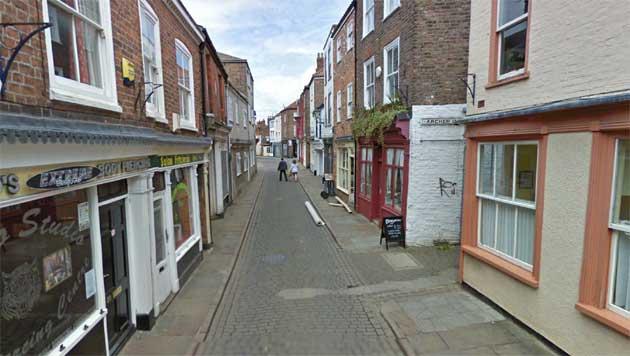Agence France-Presse reports that the town of Boston in Great Britain has begun to resemble a small corner of Eastern Europe, where butcher shops feature wreaths of Polish kielbasa and vodka on the shelves and people converse in Latvian and Lithuanian on the street. According to the latest census, more than 10 % of the inhabitants of the quiet little town in the county of Lincolnshire in eastern England is from one of the formerly communist countries that joined the European Union at the start of the millennium.
Boston has changed a great deal since the 2001 census, when 249 German residents comprised its largest community from abroad. Today it features Polish cafés and shops with products from the Baltics.
Great Britain is expecting a second wave of immigrants from Eastern Europe, this time from Bulgaria and Romania, whose 29 million inhabitants will have access to the labor market in all EU countries next year. The news has prompted enormous outrage in Boston, where signs in five languages already call on drivers to be careful when driving near a local school.
"We’ll soon be foreigners in our own town," complains a pensioner named Joan. "I have neighbors from Eastern Europe and they’re very pleasant, but it’s enough, we don’t want any more."
Her British neighbors, however, object to their new fellow-citizens, from the burden they place on public services to their driving on the wrong side of the road. Even some immigrants now living in Boston are objecting to the possibility of more Eastern Europeans joining the community.
When the Czech Republic, Estonia, Hungary, Latvia, Lithuania, Poland, Slovakia and Slovenia joined the European Union in 2004, Great Britain was one of the first countries to immediately open its labor market to the newcomers. As the third-largest economic power in Europe, Britain became a favorite destination for workers from the former communist countries, which were very impoverished.
People of Asian origin, comprising 7 % of the population, and black people, comprising 3 %, continue to constitute the largest immigrant groups in Great Britain as a result of its colonial past. However, among its population of 62 million, there are a now one million people from Eastern Europe, and Polish is the second most-spoken language there, after English.
The British government and that of several other countries decided to take a different approach when Bulgaria and Romania joined the EU in 2007, restricting labor market access for their citizens until 2014. The right-wing press is now writing more and more frequently about the potential threat posed by "beggars" from Bulgaria and Romania coming to the country.
There are no official preliminary estimates of how many Bulgarians or
Romanians might move to Britain, but some media outlets are claiming it
could be hundreds of thousands of people.
The Conservative Party of British PM David Cameron has also toughened its posturing on immigration. The mistrust has promoted outrage in Romania, where a daily paper has launched a humorous campaign about English people under the slogan "Why couldn’t they come here?" Speaking in London, Romanian Ambassador Ion Jinga expressed regret over the British rhetoric, which portrays his fellow Romanians as second-class citizens, and expressed concern that it could lead to attacks and discrimination against Romanians already living in Great Britain.
